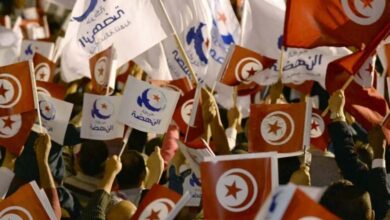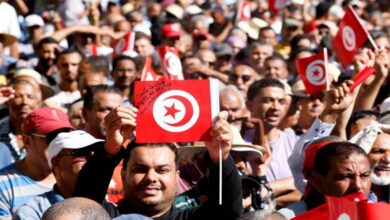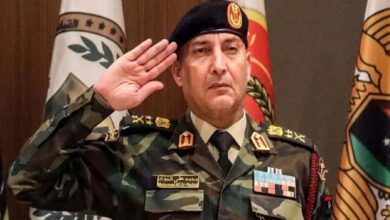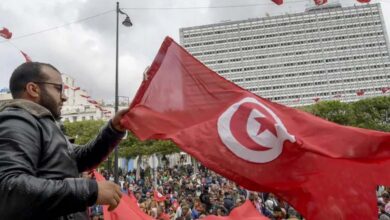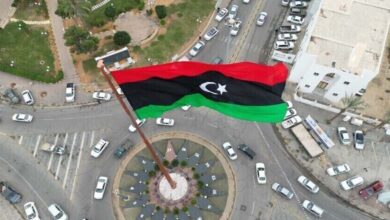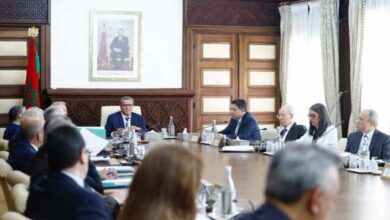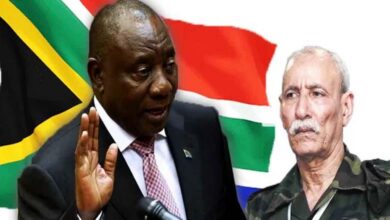Investigation with Ghannouchi over meeting wanted individuals in terrorism cases
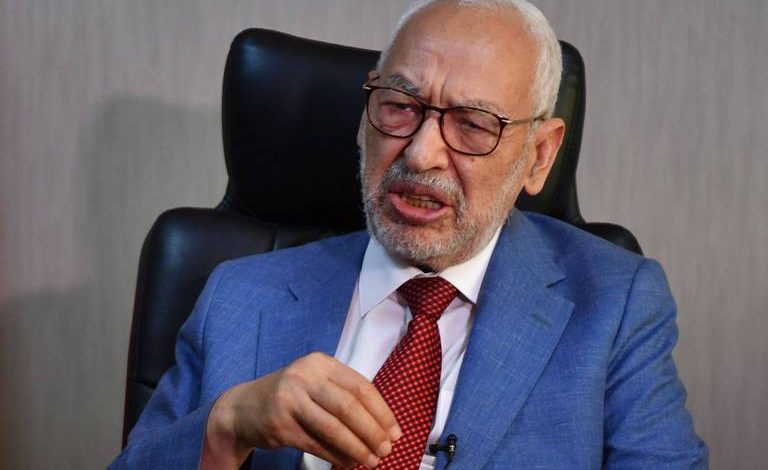
Ennahdha’s president and the head of Tunisia’s disbanded parliament, Rached Ghannouchi, is facing terrorism-related charges to be added to a raft of those brought before his arrest last week: conspiracy to undermine internal state security and incitement to change the constitution.
A member of Ghannouchi’s defense team announced Tuesday the decision to “boycott the interrogation sessions.”
“Recalling Ghannouchi has become an abomination,” said lawyer Mokhtar al-Jamaa in a Facebook post.
“Ghannouchi attended more than 120 hours of interrogation, investigation and combat, and decided to boycott any summons to attend,” the statement said.
“He (Ghannouchi) is in prison and you do what you want,” he said.
Soumaya Ghannouchi, the movement’s president’s daughter, said in a tweet that her father “decided to boycott the investigation sessions, after attending for more than 120 hours investigating cases fabricated by empty files.”
Ghannouchi was released on Monday night after completing his case against a security union member who filed a complaint against him for allegedly meeting people wanted on terrorism charges, private radio Mosaique reported.
According to the data, the security union has confirmed that it has a recording documenting Ennahdha’s meeting with this terrorist element.
Ghannouchi remains in Mornaguia prison on charges of conspiring against internal state security and masterminding an attack intended to replace the state apparatus, charges that can carry the death penalty, according to his lawyer Samir Dilou.
Ennahdha has repeatedly been accused of terrorism, whether in its travel documents, assassinations or the secret service, but every time he is kept free, while his opponents insist he is accused of opening the country to militant groups after the revolution.
On the other hand, Rachid Ghannouchi and the leaders of the Ennahdha Movement confirm that they were the main victims of the terrorist operations and political assassinations that the country went through, and that they lost politically and their popularity declined greatly.
After 2011, Tunisia suffered a rise in the influence of terrorist groups, with Ennahdha being accused by its opponents of exploiting these groups to impose hegemony. But the movement asserted that its leadership had put Salafist groups such as Ansar al-Sharia on terror lists in an attempt to stop the excesses of the militants.
Opponents Chokri Belaid and Mohamed Brahmi were assassinated, and soldiers, security personnel and tourists were killed, amid fears the country would plunge into an ongoing wave of violence and terrorism.
The head of Ennahdha’s movement stirred controversy after the leaked video of him speaking to a number of Salafists in 2012, at which time he said that “the military and security institutions are not guaranteed, and warned some Salafists that the gains made since the rise to power of Ennahdha are reversible, as happened with Algeria’s Islamists in the nineties.
Ghannouchi’s supporters justified his statement as an attempt to push hardline Salafists to refrain from relying on violence and abide by the law, while his opponents argued that the registration was a punitive measure
It is not known whether the security unionist intended this leak in his recent affidavit against Ghannouchi and his ties to terrorist elements.
Ennahdha leaders such as Ali Larayedh, Noureddine Bhiri, Mohamed Ben Salem, and Sayyed Ferjani were in prison on charges of terrorism, such as Tasfeer.





